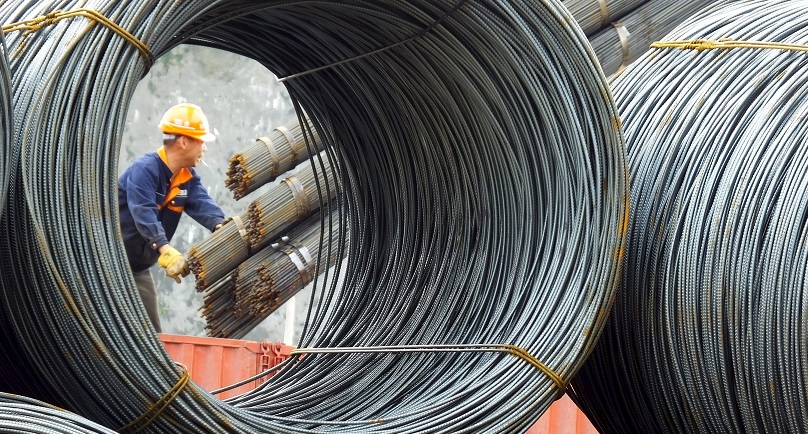Image: An employee unloads steel products at a market in Yichang, Hubei Province, China, April 7, 2016. REUTERS/China Daily/File Photo
WASHINGTON (Reuters) – The United States and seven other countries on Tuesday called for urgent action to address global steel overcapacity, a day after major steel producing countries failed to agree on measures to tackle an industry crisis.
Representatives of the United States, Canada, the European Union, Japan, Mexico, South Korea, Switzerland and Turkey agreed that urgent steel industry restructuring was imperative, and must be market driven, according to a joint statement released by the U.S. Department of Commerce.
They also agreed that their governmen’s should not provide subsidies or other support that’sustain loss-making steel plants or encourage additional capacity.
In a separate statement, U.S. officials said they would continue to lobby for action on steel with trade partners.
“It is our shared goal that other economies, including China, will come to recognize the value of these actions and will join our collective effort to address the causes of the current excess capacity problem,” Secretary of Commerce Penny Pritzker and U.S. Trade Representative Michael Froman said in a separate statement.
“The United States will continue to engage bilaterally and multilaterally with trading partners, including China, to take meaningful action to meet that goal.”
A meeting of ministers and trade officials from over 30 countries, hosted by Belgium and the OECD on Monday, concluded only that overcapacity had to be dealt with in a swift and structural way.
Washington pointed the finger at China, saying Beijing needed to cut overcapacity or face possible trade action from other countries.
But China officials said it was already taking sufficient steps to curb capacity, while state news said blaming China for the global steel industry crisis was a lazy excuse for protectionism that would be counter-productive.
China’s steel production hit a record high last month as rising prices, and profits, encouraged mills that had been shut or suspended to resume production.
The OECD says global steelmaking capacity was 2.37 billion tonnes in 2015, but declining production meant only 67.5 percent of that was being used, down from 70.9 percent in 2014.
Britain in particular has felt the squeeze as its largest producer Tata Steel has announced plans to pull out of the country, threatening 15,000 jobs. Last week, more than 40,000 German steel workers took to the streets to protest against dumping from China.
(Reporting by Eric Beech; Additional reporting Melanie Burton in MELBOURNE; Editing by Eric Walsh and Lincoln Feast)
Copyright 2015 Thomson Reuters. Click for Restrictions.


